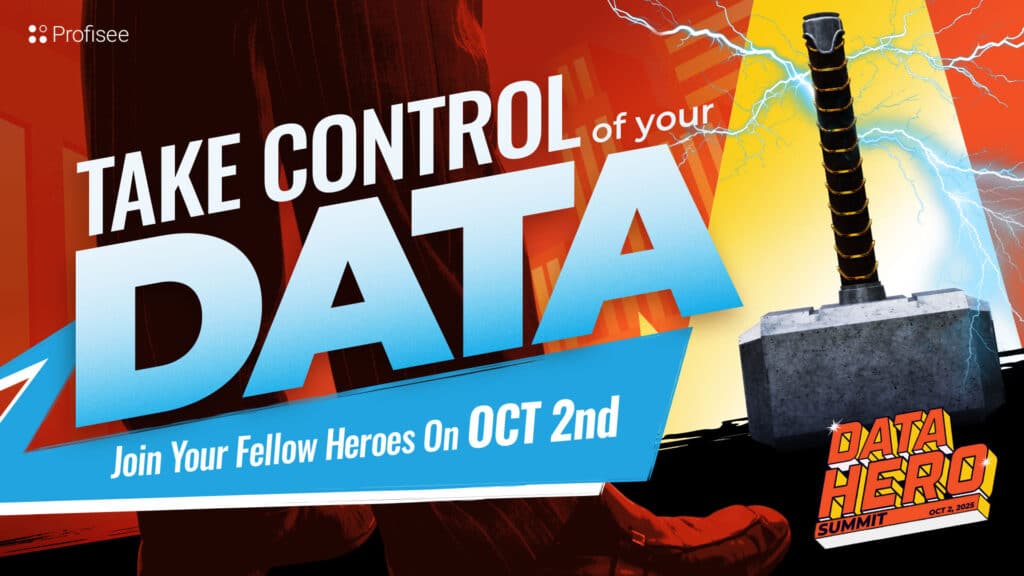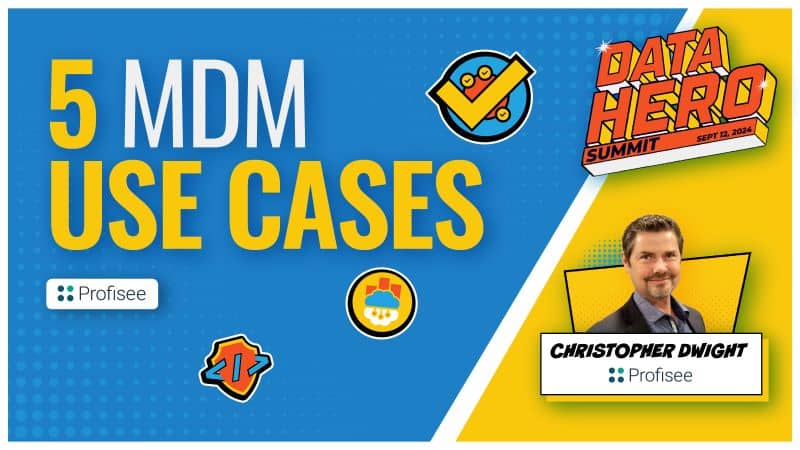Key Takeaways
Some customers struggle to get budget approval for their master data management (MDM) initiatives while others seem to have no difficulty securing funding.
This often happens because data teams try to sell MDM to the business as a technical solution that will alleviate data pain points like poor data quality and the proliferation of data silos.
Instead, data teams should focus on selling MDM as a business solution, using business terms.
Updated: September 23, 2025
Customers often wonder how some organizations get budget approval for their master data management (MDM) initiatives quickly while others struggle to get funding. Customers know there is a business need, but they struggle to get buy-in, leading to a lengthy debate where the decision in some cases is to do nothing.

The 2025 Data Hero Summit
So how are some organizations able to communicate the business value of master data management successfully, allowing them to move forward quickly and start realizing business value? Well, here’s your answer.
Stop Calling It an “MDM Project”
When selling the business on the need for a master data management tool, the most successful customers did not call it an MDM project or use any technical language to describe the solution. Instead, they focused on communicating the business solution in business terms.
For example, instead of pitching a solution as an “MDM solution for the customer domain,” associate the solution with some underlying initiative — for example, a “Unified Customer Experience” project. Taking this approach helps your audience understand that the real value of MDM lies in driving positive business outcomes, not in improving data quality or breaking down data silos or some other esoteric-sounding data term.
Read more: “How Do You Measure the Business Value of MDM?”
Know Your Audience
Next, you need to take this concept a step further and understand the specific audience you’re selling to internally.
For example, if you’re positioning the solution to sales, you’ll want to focus on how the solution will help sales. How could data management do that? Here are some examples to help you get started:
- Providing a complete central view of an account: Using matching to group duplicate records within and across applications, sales reps can connect the dots and view the complete history of an account to determine what they have and have not purchased. With more accurate information, they will be prepared and can more accurately identify cross- and up-sell opportunities.
- Improving the quality of the data: Your sales team can better identify the accounts they should focus on. With accurate contact and address information — enriched with financial and credit information — sales reps can better identify the accounts to focus their efforts on and have a single set of accurate contact and address information.
- Supporting data-driven marketing: By connecting the dots for your customer data across the enterprise, marketing will have better information to feed digital marketing efforts. This means an increase in the volume and quality of leads generated by marketing, which will ultimately enable sales to win more business.
Calling on customers — with an accurate view of customer data and what other products may be a good fit for them — leads to a salesperson getting through the entire sales cycle that much faster. The result? More revenue to more customers more quickly.
Change the Focus
Getting the business to embrace data management is all about changing the focus. Instead of positioning MDM as a technology solution with technical capabilities such as matching, data quality and workflow, sell it as a Unified Customer Experience solution that gives the business clean, trusted data with a 360 view of the customer to enable sales and drive positive business outcomes.

Forrest Brown
Forrest Brown is the Content Marketing Manager at Profisee and has been writing about B2B tech for eight years, spanning software categories like project management, enterprise resource planning (ERP) and now master data management (MDM). When he's not at work, Forrest enjoys playing music, writing and exploring the Atlanta food scene.











